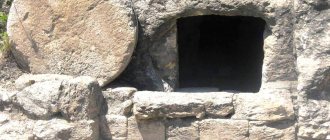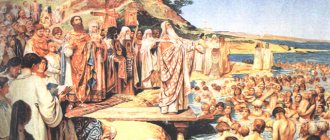In this lesson we will learn about the life of Jesus when He was a boy. The Bible doesn't say much about His life between His birth and ministry, but we do have one passage found in Luke 2:41-52.
Key points:
- Jesus was human and grew up just like us.
- Jesus loved the Word of God and God's house.
- We must be careful to never forget Jesus.
lesson guide video in English
Lesson Guide:
Begin the lesson by reviewing what the children already know about Jesus. Ask your child if they remember where Jesus was born? In Bethlehem. Tell them that after living in Egypt for some time to hide from King Herod, Joseph, Mary and Jesus returned to Nazareth. Emphasize how Jesus lived an ordinary life like us. He had breakfast, lunch and dinner. Tell them that Mary and Joseph had other children. Jesus grew up in an ordinary family. Explain that Jesus attended synagogue school to learn about the Old Testament.
Read Luke 2:40. Talk about how Jesus grew up:
- 1) He grew in wisdom. He learned things from school, synagogue (church) and others.
- 2) He grew physically. He ate well and was in shape to grow big and strong.
- 3) He grew spiritually. He studied the Bible, prayed and loved God.
- 4) He grew up socially. He made friends and treated others the way he wanted to be treated.
Share how we should also grow in these areas. Give examples of how we can grow in these areas. Try finding some old photos or clothes of your child to remind them of how they have grown physically. Give him a few simple tasks to do, such as eat on his own, and tell him that he couldn't do this when he was a child.
Share that when Jesus was 12 years old, he went with his family to Jerusalem to celebrate the Passover. Note: For preschoolers, twelve years is a long time. They may not even think of such a person as a child. Try to give an example of someone you know who is 12 years old. If you are teaching a lesson at church, you might want to invite someone twelve years old to come into your classroom.
Talk about how the law required people to celebrate Easter and some other holidays. Talk about Passover and how God saved his people from Egypt. Think about some of the holidays we celebrate and what they teach us about God. Christmas, Easter, Pentecost, etc.
Share how on their way back from Jerusalem, Mary and Joseph noticed that Jesus was missing. You can share a story about loss or a fictional character who gets lost in a supermarket. Think about the emotions of the child and parents. Talk about how important it is always for us to be close to our parents and hold their hand in crowded places so we don't get lost.
Think about the times we forget about Jesus. Maybe we do something bad, knowing that Jesus will not like it, forget to pray and think about what honors Him.
Talk about how Mary and Joseph looked everywhere for Jesus and they found Him in the temple among the teachers. Share that although He was young, He loved the Bible and wanted to talk about it with others. Tell your child how much you love it when he shares what he has learned from the Bible with you.
Share how Jesus returned home with Mary and Joseph. Jesus knew how important it was to obey your parents.
Strange date
Let's start with the year. After all, it is from this date that it is customary to consider the onset of a new, or “our” era. According to the established system of numbering years, the “zero” year is counted from the time of execution: if at the time of the crucifixion Jesus was 33 years old, then he was born exactly 33 years ago. Under Emperor Augustus. During the reign of Herod the Great. There is no doubt about Octavian Augustus - he became emperor in 27 BC and died in 14 AD. But Herod died in 4 BC! Therefore, Jesus could not have been born in year zero, that is, in 1 AD, since Herod had already been resting in the sarcophagus for four years. Judea was ruled by his son Archelaus. But all the Gospels stubbornly insist: Herod was still very much alive. It was he who began the beating of infants in order to get to that special one who, as he understood from the stories of the Magi, was destined to sit on the throne of Judea. According to the Byzantine version of church tradition, 14 thousand children were killed, according to the Syrian version - as many as 64 thousand! However, none of the ancient historians, without denying the exceptional cruelty of the king, mentions the mass beating of infants. And in the Gospels, along with “flight from reprisals,” another, quite understandable version of the movement of Joseph’s family from Nazareth to Bethlehem is mentioned - the usual census, which was periodically carried out in the Roman provinces. The census was conducted in large Bethlehem, where residents of smaller settlements were supposed to appear. Joseph and his pregnant wife were forced to find themselves in this stream of people and found the only place to stay for the night - a barn. The census - and this is known for sure - was carried out in 7 BC. Yes, Herod was alive that year, although his mind was thoroughly clouded. He suspected everyone he could of conspiracies. He even executed two of his sons so that the throne would not be usurped. Jesus was most likely born in 7 BC. But for what reasons his family left Bethlehem not back to Nazareth, but to Egypt - nothing is known about this. Maybe just out of fear that today they will sign everyone up, and tomorrow they will come and kill you. The common people did not expect anything good either from the crazy king or from the Romans.
Special child
Both the Infancy Gospel and the Childhood Gospel of Thomas answer the question of what kind of child the boy Jesus was, answering in the same way - special. He did not understand at all the boundaries between good and evil and did not know how to measure his own supernatural powers. At first, after returning home, Maria kept the child at home, not allowing her to play with her peers. But Joseph insisted that he needed communication. Sometimes this communication was quite friendly, but as soon as someone objected to Jesus, He reacted quickly and deadly. One day He was playing with other children on the bank of a stream, sculpting birds out of mud and immediately bringing them to life. Another boy came up and began to trample the puddles, saying that you can’t do anything on Saturday. Jesus looked at him and said: “As you dried up my pools, so you will dry up yourself.” The boy withered and died. When some boy pushed Him hard, He immediately said: “Fall yourself and don’t get up again.” The child fell and died. The parents ran to complain to Joseph, but Jesus instantly struck them blind. Some miracles were impressive but harmless. One day He went into a dyer's workshop and threw into a vat all the fabrics intended to be dyed in different colors. The dyer was angry that Thoth ruined his work. Then Jesus began to pull out fabrics of the color that was needed from the vat. In his father’s carpentry workshop, He did not adhere to the dimensions required for making furniture, but with His word shortened or lengthened the parts. Once Joseph was ordered to make a throne for a local king, and the throne turned out to be a little narrower than required. Jesus was not at a loss. He told his father to grab one side, he grabbed the other, and they “stretched” the throne to the required width. During the spring sowing, Jesus threw just one grain into the ground, which greatly surprised the farmers and His family. But at the end of summer, this grain yielded such a harvest that Jesus was able to feed all the poor free of charge. As a child, Jesus loved to play king of the Jews. A wreath of flowers and herbs was placed on His head, and He sat on the “throne” and received offerings from children. One day He turned children into lambs and, only after seeing the horror on the faces of their mothers, He returned them to human form. Another time, one of the boys was bitten by a snake while playing, the parents were scared and did not know what to do. Jesus, taking the form of a king, ordered everyone - both children and adults - to take the bitten person on a stretcher and go to the snake's nest, where He ordered the snake to crawl to the child and drink all the poison from the wound. The child was healed, but the snake died. With brother Jacob, who was bitten by an echidna (viper), He acted even simpler - he simply blew on the wound and healed it. Jesus gained fame as a little sorcerer. People were afraid of Him. As soon as trouble happened, everyone immediately pointed to Jesus. One day, while playing on the roof, one boy fell and died. They began to blame Jesus because He was evil. Jesus promised that the dead boy would tell himself who was to blame. He revived the dead man, and the boy admitted that he fell himself. Finally, Joseph decided that it was time for Jesus to learn. And the teacher Zaccheus came to him, who was supposed to teach the child to read and write. He began, as expected, with the letter aleph, the first in the Hebrew alphabet. Then he wanted to move on to the second letter, bet, but Jesus demanded that the teacher first explain the meaning of the letter aleph. The teacher took the stick, but Jesus stood his ground - they say, first explain, and then I will name the second letter bet. Zaccheus could not say anything about the meaning of the letter aleph, Jesus himself did this for him - He explained to Zaccheus the meaning of the letter aleph, and the meaning of other letters, and the difference in their outline. According to the Infancy Gospel, the shocked Zaccheus appeared to Joseph and refused to teach Jesus, since He knew more than he did. The second teacher that Joseph found turned out to be more prudent: he immediately saw a little sage in Jesus. Neither the Gospel of Thomas nor the Infancy Gospel were accepted by the official church. And it’s clear why. Such a Jesus, doing evil, and not an obedient and affectionate shepherd, herding sheep on a green idyllic hill, was completely unnecessary for the church. He felt like God and behaved like God. But He was still a boy and had not yet understood His purpose - right? Or does age not matter to God?
Joseph and Mary
122:1.1 (1344.4) Joseph, the earthly father of Jesus (Yeshua ben Joseph), was a Jew of the Jews, although he had much Gentile blood, which was occasionally added to his family tree by his female ancestors. The ancestors of the father of Jesus went back to the time of Abraham and through that venerable patriarch to even more ancient ancestral lines going back to the Sumerians and Nodites, and through the southern tribes of the ancient blue man to Andon and Fonte. Neither David nor Solomon were Joseph's direct ancestors, and his lineage did not go back to Adam himself. Joseph's immediate predecessors were craftsmen - builders, carpenters, masons and blacksmiths. Joseph himself was a carpenter and later a contractor. His family belonged to an ancient and distinguished line of noble commoners, in which from time to time there appeared outstanding individuals who distinguished themselves in the development of religion on Urantia.
122:1.2 (1345.1) Mary, the earthly mother of Jesus, was the descendant of an ancient line, and among her unique ancestors were many of the most illustrious women in the history of the Urantia races. Although Mary was an ordinary woman of her time and generation and had a completely normal temperament, among her ancestors were such famous women as Hannon, Tamar, Ruth, Bathsheba, Ansi, Cloe, Eve, Enta and Ratta. No Jewish woman of that time had a pedigree that included more illustrious ancestors or that went back to more favorable origins. The family of Mary - like the family of Joseph - was distinguished by the predominance of strong but ordinary individuals, among whom many individuals periodically appeared who made a great contribution to the development of civilization and the progress of religion. From a racial point of view, Mary can hardly be considered Jewish. In her culture and faith she was Jewish, but in her heredity she was more of a mixture of Syrian, Hittite, Phoenician, Greek and Egyptian blood, having a wider racial heredity than Joseph.
122:1.3 (1345.2) Of all the couples living in Palestine at the time of Michael's supposed bestowal, Joseph and Mary possessed the most ideal combination of a rich racial heritage and ordinary personal qualities. According to Michael’s plan, he was supposed to appear on earth as an ordinary person - one that ordinary people could understand and accept. Therefore, Gabriel chose precisely such people as Joseph and Mary as his future bestowal parents.
About wisdom and grace
The canonical Gospels are silent about many things. For example, nothing is clear about Joseph’s family. Jesus is considered the only son of Mary, whom she immaculately conceived and immaculately bore. Although it was very difficult to completely bypass the issue of the brothers and sisters of Jesus, especially in the early centuries of Christianity, because the first bishop of Jerusalem was James, the brother of Jesus. And besides Jacob, Jesus had three more brothers and two sisters. Children of Mary born after Jesus. Children whose biography was not at all interested in the church. On the contrary, in church tradition they became either first cousins or children of Joseph from his first marriage. Why could this even happen? You need to look for the answer precisely in the apocryphal gospels. It is written there in black and white that Jesus did not love his family and did not consider his parents to be his family. That is, in this family He felt like a growing cuckoo, a child in someone else’s nest. It is not for nothing that the entire childhood and adolescence in the official Gospels fit into one line: “The child grew and became strong in spirit, filled with wisdom, and the grace of God was upon him.” For, if we go into the details of this wisdom and grace, nothing human will remain from the image of Jesus familiar to us. And what suddenly appears before your eyes is incomprehensible. Maybe that is why 30 years of His life, childhood, adolescence, adolescence and youth were outside the scope of church texts. For to say that the life of Jesus was as inconspicuous as that of ordinary people is the same as saying nothing. And to talk about the peculiarities of the views of this person and the metamorphoses of the personality of the one who sat down at the right hand of the King of Heaven is completely unacceptable. Gods are not discussed, they are worshiped. And no matter how much Christians loved to tell in their lives about the childhood of martyrs and saints, they made an exception for Jesus. They didn't say a word.
Magazine: Mysteries of history No. 3, January 2021 Category: Historical investigation Author: Elena Filimonova
Tags: Mysteries of history, life, church, Christianity, Jesus Christ, gospel, apocrypha, childhood
- Back
- Forward










